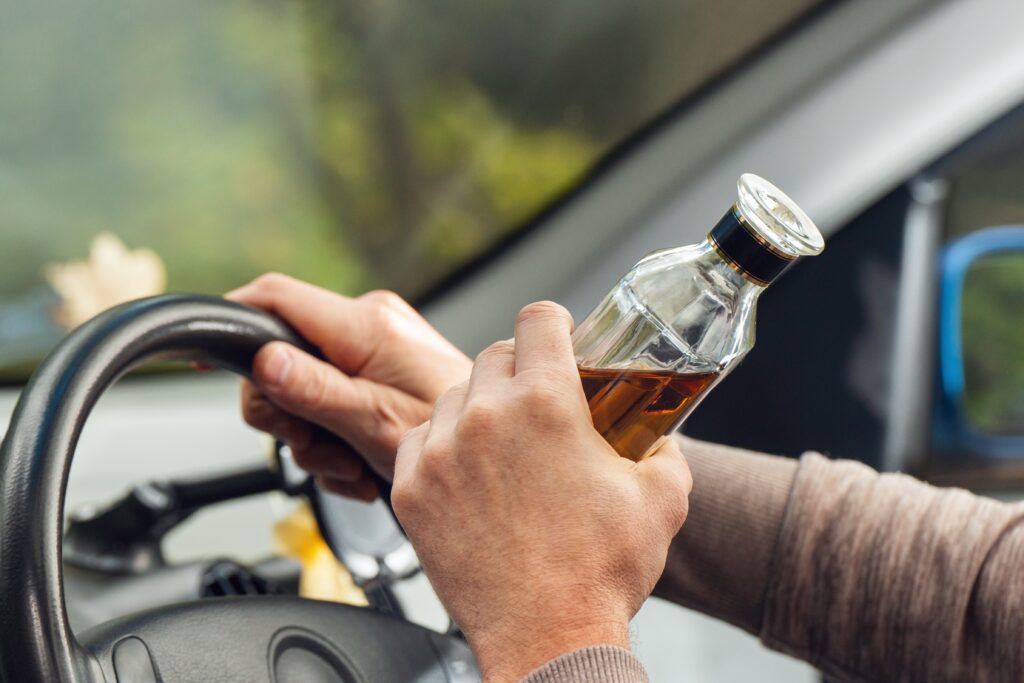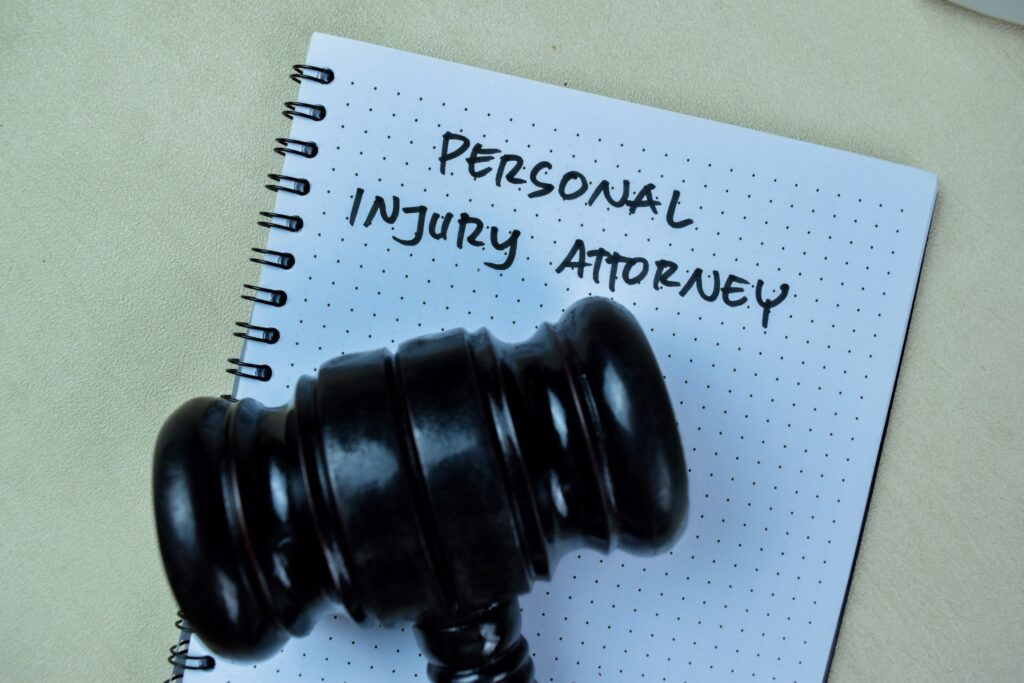Yes, you have the right to sue a drunk driver in Alberta if their actions have caused you injury and loss.
When you are hit by an impaired driver, it sets two different legal processes in motion. The first is the criminal case, where the justice system deals with the driver for breaking the law. The second, separate process is your right to file a civil claim for compensation to recover your losses.
The purpose of a civil claim is entirely different from the criminal case. While the criminal courts focus on punishing the driver for their reckless choice, your civil lawsuit is the process designed to provide you with the financial resources needed to rebuild your life. It is focused on your recovery, not the driver’s punishment.
An experienced Edmonton drunk driving accident lawyer from MNH Injury Lawyers can help ensure your rights are protected throughout this process.
If you or a loved one has been injured by an impaired driver, we’re here to help. Call MNH Injury Lawyers at (888) 664-5298. We will explain your rights specific to your case and help you understand the next steps.
GET YOUR FREE CONSULTATION NOW!
The Two Legal Cases Compared
The Criminal Case: A Matter for the Crown

This process is handled by the government and focuses on enforcing the Criminal Code of Canada. The main takeaway is this: it is entirely separate from your personal injury claim. The Crown prosecutor’s goal is to secure a conviction, which may result in penalties for the driver such as fines, a licence suspension, mandatory educational programs, or even jail time.
While this case is not about your compensation, a criminal conviction for impaired driving can serve as powerful evidence in your civil claim. It makes it much simpler to prove that the other driver was negligent and at fault for the collision.
Your Civil Claim: A Matter for You
This is the legal action you initiate with the help of a lawyer to seek financial compensation for your injuries and all resulting losses. This process is entirely focused on assessing the harm you have suffered—physically, emotionally, and financially—and securing the funds needed to address that harm.
Think of it this way: the criminal case is the referee penalizing the player who broke the rules. Your civil case is about ensuring the injured player gets the medical care and financial support they need to get back on the field. This is the part of the process MNH Injury Lawyers handles for you.
What Kinds of Compensation Can You Actually Claim in a Lawsuit?
Since essential medical services are covered by Alberta’s public health system, a personal injury lawsuit targets the other significant losses that accidents cause. So, your claim is built around making you whole again by addressing the other ways the injury has impacted your life and finances.
Pain and Suffering (Non-Pecuniary Damages)

In simple terms, this is compensation for the physical pain, emotional distress, and the reduced enjoyment of life that results from your injuries. This is especially relevant in cases involving serious trauma like brain injuries, spinal cord injuries, or other conditions that permanently alter your life.
Loss of Income and Earning Capacity
This category is broken into two parts:
- Past Income Loss: This covers the wages, salary, and other income you have already lost because your injuries prevented you from working.
- Future Income Loss: If your injuries are long-term or permanent, we will pursue compensation for the income you will be unable to earn in the future. For those with life-altering injuries that affect their ability to return to their career, this is a component of securing their financial future.
Cost of Future Care and Out-of-Pocket Expenses
This category covers expenses not paid for by public health or your own Section B benefits. It is designed to provide for your ongoing recovery needs and can include things like:
- Specialized therapies, such as physiotherapy, massage, and occupational therapy.
- Assistive devices like wheelchairs or walkers.
- Modifications to your home or vehicle to accommodate a disability.
- Other costs essential to your recovery and maintaining your quality of life.
Property Damage
This is the most straightforward part of a claim. It covers the cost to repair or replace your vehicle and any other personal belongings, like a laptop or cellphone, that were damaged in the collision.
Section B Benefits: Financial Help That’s Available Right Away
Immediate, No-Fault Support
Every Alberta Standard Automobile Policy (S.P.F. No. 1) includes a mandatory section for accident benefits, commonly known as Section B benefits. These are “no-fault” benefits, which means you can access them through your own insurance policy right away, regardless of who caused the accident. Their purpose is to provide immediate financial support while your larger injury claim is being resolved.
What Section B Covers
Section B benefits provide coverage up to specific limits for several key areas:
- Disability/Income Replacement: If you are unable to work due to your injuries, these benefits will replace 80% of your gross weekly income, up to a maximum of $600 per week. It is important to note that there is a 7-day waiting period; benefits are not paid for the first week of disability.
- Medical and Rehabilitation: While Alberta Health covers major medical procedures, Section B provides up to $50,000 for other necessary treatments to aid your recovery. This includes services like physiotherapy, chiropractic care, massage therapy, dental work, and psychological counselling.
Our role at MNH Injury Lawyers is to ensure that your claim for these benefits is properly submitted and that you receive the full amount you are entitled to under your policy. This helps ease the immediate financial pressure so you can focus on healing.
Does a Cap on Damages Apply to My Claim? The Minor Injury Regulation
Introducing the “Injury Cap”
You may have heard about a “cap” on injury claims in Alberta. This refers to the Minor Injury Regulation (MIR), a law that limits the amount of compensation for pain and suffering for injuries that are classified as “minor.”
What Is a “Minor Injury” Under the Law?
The MIR applies specifically to soft tissue injuries like sprains, strains, and some whiplash-associated disorders (WAD I-II) that do not result in a serious, long-term impairment. In simple terms, these are injuries that are expected to resolve fully in a relatively short period.
When the Cap Does Not Apply
The cap is not a factor for serious injuries. The regulation was never intended to limit claims for injuries that have a lasting impact on your life. Clear examples of injuries that are not minor and therefore not capped include:
- Traumatic brain injuries
- Spinal cord injuries
- Fractures
- Chronic pain syndromes
- Any injury that leads to a significant and lasting inability to perform your normal work, school, or daily activities
The Current Cap Amount
The exact dollar amount of the cap is adjusted annually to account for inflation. An insurance company may try to tell you that your injury falls under this cap to limit their payout. Their opinion isn’t the final word.
Before you accept any assessment from an insurer, speak with a lawyer. A legal professional will help determine the true nature of your injuries and whether the cap applies to your situation at all.
How a Drunk Driver’s Choices Strengthen Your Lawsuit
Proving Fault is Clear
In any accident claim, you must prove the other driver was negligent. In the context of a car accident, negligence means one driver failed to be reasonably careful, causing harm to another. Driving while impaired is the very definition of failing to be careful. Evidence from the criminal case—like police reports, witness statements, and breathalyzer results—makes proving fault in your civil claim very direct and difficult for the insurer to dispute.
Pursuing Punitive Damages
Most damages in a personal injury claim are compensatory; they are meant to compensate you for a loss. Punitive damages are different.
They are an additional award intended to punish a defendant for outrageous or malicious behaviour and to deter others from similar conduct. Alberta courts recognize that getting behind the wheel while intoxicated is a reckless act that endangers the entire community. Because of this, a judge may award punitive damages in drunk driving cases. This is a type of compensation not typically available in a standard car accident claim and serves to hold the driver accountable for their egregious choice.
Frequently Asked Questions After a Drunk Driving Accident in Alberta
Even if the at-fault driver is uninsured or flees the scene (a hit-and-run), you can still pursue compensation. You may be able to make a claim through Alberta’s Motor Vehicle Accident Claims (MVAC) Program or through your own insurance policy’s uninsured motorist coverage (SEF 44 endorsement). The process is complex, but recovery is possible.
Yes. The standard of proof is different in a civil case versus a criminal one. In a criminal case, the Crown must prove guilt “beyond a reasonable doubt.” In a civil claim, your lawyer only needs to prove fault on a “balance of probabilities,” which is a lower threshold. A lawyer can still build a strong case for compensation even without a criminal conviction.
This is a devastating situation. Under Alberta’s Fatal Accidents Act, specific family members (a spouse, adult interdependent partner, parent, or child) can file a wrongful death claim. This action seeks compensation for their profound loss, including the loss of care, companionship, and financial support. Only one claim can be filed on behalf of all eligible family members, and siblings are not eligible to file a claim under this Act.
MNH Injury Lawyers handles these cases on a contingency basis. It simply means you do not pay any legal fees upfront. We cover the costs of building your case, and we are paid a percentage of the final settlement or award only when we successfully resolve your claim. If you don’t get paid, we don’t get paid.
No, it doesn’t matter whether the impairment was caused by alcohol, cannabis, or other drugs. Under both the Criminal Code and Alberta’s Traffic Safety Act, impaired driving is impaired driving, regardless of the substance. Cannabis impairment is treated the same as alcohol impairment for both criminal charges and civil liability purposes. Police can detect cannabis impairment through roadside testing and drug recognition experts, providing the same type of evidence for your civil claim as alcohol-related impairment cases.
Secure Your Future with MNH Injury Lawyers

The law is designed to hold drunk drivers fully accountable, not just criminally, but financially. While they chose to put everyone at risk, you get to choose how to respond. That choice can secure your family’s future and make Alberta’s roads safer for everyone.
At MNH Injury Lawyers, we’ve seen how the right legal action transforms both individual lives and community safety. An experienced Edmonton personal injury lawyer from our team will stand by your side to ensure your voice is heard and your rights are protected.
When you’re ready to turn this injustice into justice, we’re ready to fight alongside you.
Call (888) 664-5298 and take the first step toward reclaiming your future.